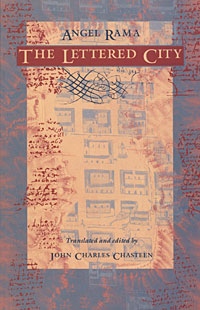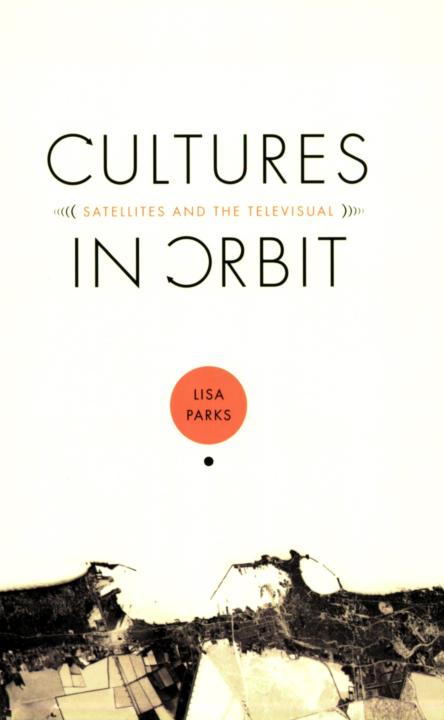Angel Rama: The Lettered City (1984–) [Spanish, English]
Filed under book | Tags: · city, education, history, history of literature, language, latin america, literary theory, literature, space

“Angel Rama’s La ciudad letrada was published in 1984, shortly after he had died in a plane accident in Spain. Since then, it has quickly established itself as one of the most daring, perspicacious and innovative analyses of Latin American history, literature and political culture. However, because it was not completed due to his untimely death, the book was an incomplete synthesis of several decades of literary criticism and history. Even if Rama had not written La ciudad letrada, his place on the canon of Latin American letters would have been secured by his pioneering work on intra-American comparative literary studies. Rama, appropriating a term from Cuban anthropologist Fernando Ortiz, introduced into Latin American literary studies the term ‘transculturation’, which sought to conceptualize the interaction between indigenous, criollo and mestizo cultures in Latin America, and in this way he gave a hermeneutic key for unlocking many key texts of Latin American letters.
Rama’s book is surely about letters, literature and writing, but it is also about cities, space, spatialization and the relationship between the syntax of languages and the order of space. The book is, in fact, what one may call a philosophical-historical-cultural essay that uses literature and the ‘writer’–el letrado–to elaborate a wide-ranging interpretative thesis about Latin America as a cultural unit. Its genre is thus not a literary theory, comparative literature, or even cultural studies, even if it contributes to these. In German one calls this genre Geistesgeschichte, which is neither a spiritual nor an intellectual history, but rather a history of the animating logic of a culture.” (from a review by Eduardo Mendieta, City, 2006)
First published by Ediciones del Norte, Hanover/NH, 1984
With an Introduction by Hugo Achugar
Publisher Arca, Montevideo, 1998
ISBN 9974400244
126 pages
English edition
Translated and with an Introduction by John Charles Chasteen
Publisher Duke University Press, 1996
ISBN 0822317575, 9780822317579
141 pages
via Oral Majority
Commentary (Cora Gorman Malone, 2010, in EN)
Commentary (Brantley Nicholson, 2011, in EN)
Publisher (EN)
La ciudad letrada (Spanish, 1984/1998, 6 MB, no OCR)
The Lettered City (English, pages 40 and 56 missing, 1996, 9 MB, no OCR)
Matthew Wisnioski: Engineers for Change: Competing Visions of Technology in 1960s America (2012)
Filed under book | Tags: · 1960s, 1970s, activism, computing, education, engineering, history of computing, history of technology, labour, luddism, military, science, space, technology

“In the late 1960s an eclectic group of engineers joined the antiwar and civil rights activists of the time in agitating for change. The engineers were fighting to remake their profession, challenging their fellow engineers to embrace a more humane vision of technology. In Engineers for Change, Matthew Wisnioski offers an account of this conflict within engineering, linking it to deep-seated assumptions about technology and American life.
The postwar period in America saw a near-utopian belief in technology’s beneficence. Beginning in the mid-1960s, however, society—influenced by the antitechnology writings of such thinkers as Jacques Ellul and Lewis Mumford—began to view technology in a more negative light. Engineers themselves were seen as conformist organization men propping up the military-industrial complex. A dissident minority of engineers offered critiques of their profession that appropriated concepts from technology’s critics. These dissidents were criticized in turn by conservatives who regarded them as countercultural Luddites. And yet, as Wisnioski shows, the radical minority spurred the professional elite to promote a new understanding of technology as a rapidly accelerating force that our institutions are ill-equipped to handle. The negative consequences of technology spring from its very nature—and not from engineering’s failures. “Sociotechnologists” were recruited to help society adjust to its technology. Wisnioski argues that in responding to the challenges posed by critics within their profession, engineers in the 1960s helped shape our dominant contemporary understanding of technological change as the driver of history.”
Publisher MIT Press, 2012
ISBN 0262018268, 9780262018265
296 pages
via a2
Interview with the author (Carla Nappi, New Books in Science, Technology, and Society, audio, 1h)
Review (Caroll Pursell, The American Historical Review, 2014)
Review (Kevin T. Baker, The Sixties, 2013)
Review (Stephen H. Unger, 2013)
Lisa Parks: Cultures in Orbit: Satellites and the Televisual (2005)
Filed under book | Tags: · archaeology, art, body, journalism, mass media, satellite, space, technology, television, vision

“In 1957 Sputnik, the world’s first man-made satellite, dazzled people as it zipped around the planet. By the beginning of the twenty-first century, more than eight thousand satellites orbited the Earth, and satellite practices such as live transmission, direct broadcasting, remote sensing, and astronomical observation had altered how we imagined ourselves in relation to others and our planet within the cosmos. In Cultures in Orbit, Lisa Parks analyzes these satellite practices and shows how they have affected meanings of “the global” and “the televisual.” Parks suggests that the convergence of broadcast, satellite, and computer technologies necessitates an expanded definition of “television,” one that encompasses practices of military monitoring and scientific observation as well as commercial entertainment and public broadcasting.
Roaming across the disciplines of media studies, geography, and science and technology studies, Parks examines uses of satellites by broadcasters, military officials, archaeologists, and astronomers. She looks at Our World, a live intercontinental television program that reached five hundred million viewers in 1967, and Imparja tv, an Aboriginal satellite TV network in Australia. Turning to satellites’ remote-sensing capabilities, she explores the U.S. military’s production of satellite images of the war in Bosnia as well as archaeologists’ use of satellites in the excavation of Cleopatra’s palace in Alexandria, Egypt. Parks’s reflections on how Western fantasies of control are implicated in the Hubble telescope’s views of outer space point to a broader concern: that while satellite uses promise a “global village,” they also cut and divide the planet in ways that extend the hegemony of the post-industrial West. In focusing on such contradictions, Parks highlights how satellites cross paths with cultural politics and social struggles.”
Publisher Duke University Press, 2005
ISBN 0822334615, 9780822334613
256 pages
Review (John Cloud, Technology and Culture, 2006)
Review (Howard Fremeth, Topia, 2006)
Review (Gerald Sim, Screening the Past, 2006)
Review (Fredessa D. Hamilton, The Communication Review, 2007)
Notes from Lisa Parks’ 2008 talk on satellite art (Regine Debatty, We Make Money Not Art)

